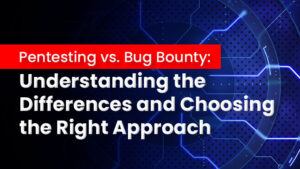Introduction
Cybersecurity is one industry that has significantly benefited from Artificial Intelligence (AI). According to a survey, human error is responsible for 95% of cybersecurity breaches. With 88% of businesses facing phishing attempts in 2019, protecting critical corporate networks has never been more critical. AI is increasingly being used as the best tool for lowering cybercrime risks.
Artificial Intelligence and Machine Learning have played key roles in expanding the medical, manufacturing, decision making, and marketing sectors in their most basic forms.
If you are interested in beginning your career in Cybersecurity, IPSpecialist is considered the best place to start your journey.
Artificial Intelligence
Artificial intelligence refers to systems that can comprehend, learn, and act on readily available and newly acquired data. By ingesting structured training data, analyzing it for patterns, and using this knowledge to make predictions, AI mimics numerous aspects of human intelligence.
AI programming entails three main processes:
This process entails gathering data and formulating rules for translating it into actions that programs can execute.
This step focuses on choosing the best algorithm for each intended action.
This aspect focuses on refining algorithms to improve performance.
Applications Of AI
A primitive kind of AI is employed to aid with activities and procedures by exploiting data collected.
AI is employed to complement and enhance it instead of replacing human intelligence, which is more complicated. Unlike assisted intelligence, augmented intelligence may combine previously collected data with new data to create new solutions.
The most advanced AI lets systems, computers, and bots behave autonomously and without human interaction.
How is AI Integrated with Cybersecurity?
AI’s adaptability makes it well-suited to dealing with the world’s ever-changing security problems. Companies that store sensitive data can use AI to build automated threat detection to stay ahead of cyber attackers. AI’s function in cybersecurity can identify and prioritize risk, detect malware on a network in real-time, lead incident response, and detect attacks before they happen.
AI is suitable for integration with cybersecurity systems due to several factors:
To comprehend network behavior and cluster recognized patterns, AI employs machine and deep learning techniques.
Large volumes of data are sent and stored regularly, especially in larger enterprises. Human evaluation and security of this data are time-consuming and complex; however, AI can automatically scan big data sets for dangers.
-
Eliminating Tedious Tasks
Although cybercriminals modify their strategies, many attacks are the same. Expert cybersecurity specialists can focus on providing new solutions to the company’s most critical concerns because AI can readily maintain continuous security procedures.
When AI is integrated into cybersecurity systems, several benefits are obtained, including:
AI provides enterprises with up-to-date information on users, behaviors, and hardware and software performance. This monitoring can help firms improve their security policies and discover problems.
This tool can automatically evaluate security efficacy and identify areas for improvement in enterprise networks.
AI can be programmed to evaluate systems and improve their efficiency and provide explanations to key organizational stakeholders.
AI-powered systems can give better context for prioritizing and responding to security alerts, quick incident response, and surfacing root causes to reduce vulnerabilities and prevent future problems.

How Does AI Help Cybersecurity
As organizations’ digital cybersecurity applications become more integrated into their systems, their massive volume of data necessitates a more robust data architecture.
The benefits of integrating AI with cybersecurity include:
Although some hacking techniques are consistent, cybercriminals are continuously devising new ways to access sensitive networks. AI detects suspicious behavior and warns security professionals by monitoring behavior and analyzing user trends.
Bots make up a significant portion of web traffic, and many of them can threaten enterprise systems. AI systems can decipher organic traffic patterns and distinguish between legitimate bots, search engine crawlers, and malicious bots. This method can also help business leaders evaluate user journeys and website activity.
AI algorithms can monitor specific hardware and software types and find vulnerabilities, assisting security teams in predicting possible attacks. Many AI apps can also give you prescriptive advice on how to handle IT security issues.
Endpoint protection has become essential for any firm trying to protect company assets from a distance as remote work becomes more frequent. In contrast to antivirus software that relies on signatures to detect suspicious activity, AI algorithms look for patterns in behavior, geography, and time zones.
What Threats Does AI Pose to Cybersecurity
The following are some examples of malicious AI use:
This strategy comprises manipulating AI data to fool computer models into making inaccurate predictions. When attackers inject algorithms into a machine learning model to identify hostile data as innocuous, this is an example of data poisoning.
-
Generative Adversarial Networks (GANs)
This method creates a mirror AI system that imitates typical traffic behavior to divert attention away from potentially destructive attacks and extract sensitive data.
Since AI is based on algorithms, cyber thieves can use AI to perform erroneous activities if they understand these models. The bitcoin industry is one shining example of this type of breach, and hackers were able to discover and manipulate trade algorithms.
Artificial intelligence is slowly becoming a vital aspect of cybersecurity, assisting enterprises of all sizes and industries in improving their security efficiency. The industries with the fastest and most sophisticated AI adoption processes are information technology and telecommunications. AI and machine learning algorithms are now being utilized to automate activities, analyze data, boost cybersecurity, and make choices at difficult speeds for humans to achieve.
AI Adopters
Google:
Since its inception 18 years ago, Gmail has utilized machine learning algorithms to filter emails. Machine learning is now used in practically all of the company’s services, particularly deep learning, allowing algorithms to make more independent adjustments and self-regulating as they train and mature.
IBM/Watson:
IBM’s Watson cognitive learning platform is increasingly used for “knowledge consolidation” jobs and machine learning-based threat detection.
Juniper Networks:
The networking community is hungry for revolutionary ideas to solve the current network’s unsustainable economics. Juniper envisions a production-ready, cost-effective Self-Driving Network to solve this dilemma.
Future of Artificial Intelligence in Cybersecurity
According to internet statistics, the global market for artificial intelligence in cybersecurity is predicted to increase at a CAGR of 23.6 percent from 2020 to 2027, reaching $46.3 billion. The International Data Corporation (IDC) predicted that global cybersecurity spending will reach $174.7 billion in 2024, with security services the largest and fastest-growing market.
Conclusion
Artificial intelligence (AI) has risen to prominence as a necessary technology for assisting human information security teams. Since humans can no longer adequately protect the dynamic corporate attack surface, AI can help cybersecurity professionals decrease breach risk and improve security posture by providing needed analysis and threat identification.
AI enables cybersecurity teams to establish powerful human-machine collaborations that expand our knowledge, enrich our lives, and drive cybersecurity in a way that appears to be larger than the sum of its parts.








